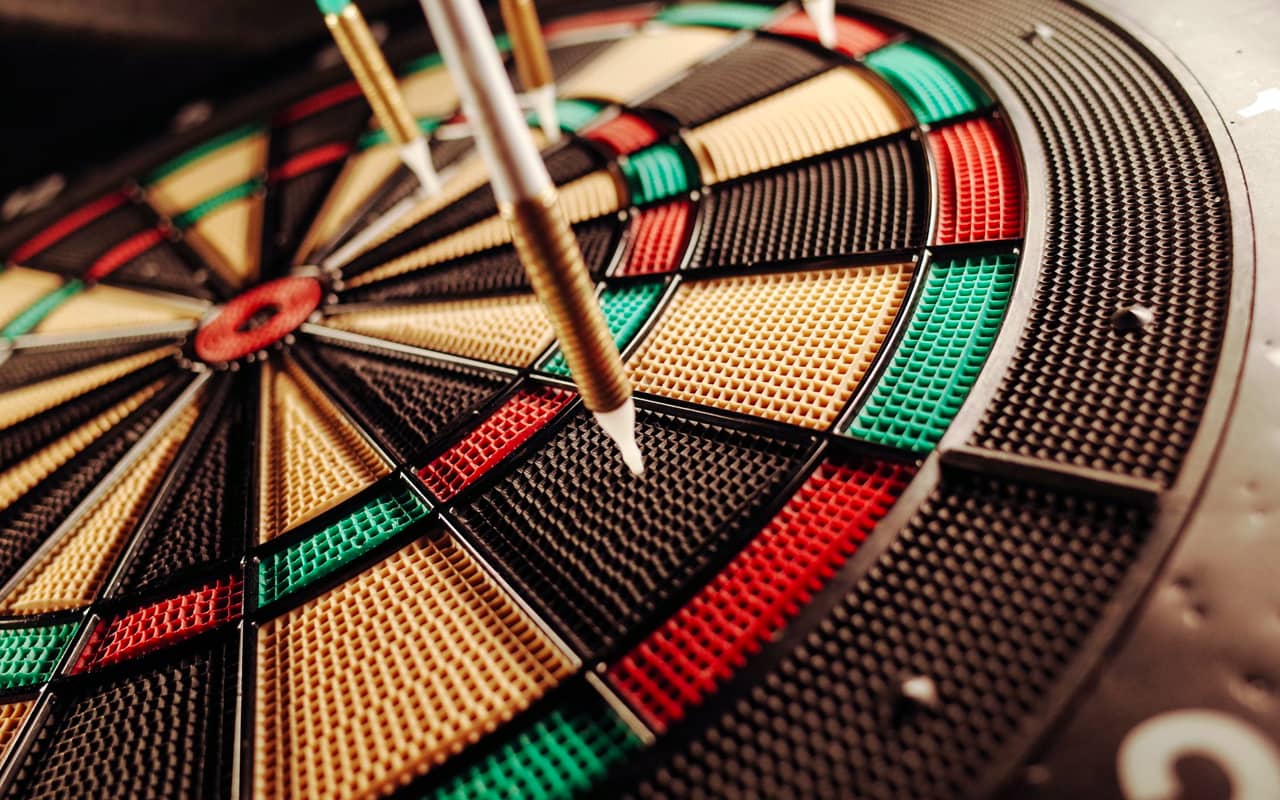 Independent thinking is rare, yet it is an easy skill to develop.
Independent thinking is rare, yet it is an easy skill to develop.
Everything begins with the decision to improve how you think.
And since you’re here, congratulations. On this page, you’ll discover a number of tips that will help you go deeper.
Just remember:
The road to independent thought involves a marathon, not a race.
In fact, taking the time to think is one of the best things you can do. So let’s dive in.
What is Independent Thinking?
Independent thinking involves having multiple mental models you can use without having to look them up or consult other people.
However, to think independently doesn’t mean you won’t consult research sources or other people. Rather, it involves having enough insight to know when you should and when seeking help prematurely risks clouding your mind.
Independent thinkers not only use some of the mental models we’ll talk about on this page, but they’re aware of negative thought patterns.
For example, we all have cognitive biases. One of the benefits of developing your critical thinking skills is developing a heightened awareness of them.
In other words, an independent thinker:
- Remembers mental models
- Remembers to use those mental models
- Knows when the models are appropriate in context
- Know the limits of of his or her knowledge and when to perform research or ask for help
- Knows when cognitive biases or other psychological factors might distort their objective reasoning skills

Why Independent Thinking is Always Scientific
Finally, I would argue that independent thinkers are scientific. This means that they back up claims they make with evidence and understand the principle of falsifiability in establishing the truth.
This final point is critical because the scientific method allows each of us as thinkers to remove ourselves from the equation. Rather than allowing emotional needs or other ego-driven aspects determine our thoughts, we focus on what is true regardless of our thoughts and feelings about it.
It can be tough to develop the trait of scientific thinking, and even tougher to practice it. However, it is essential to developing true independence as a thinker. You need to see the world as it is, not as you wish it to be.
Independent Thinking Vs. Critical Thinking
Some people say that independent thinking is the wish to think for yourself and that critical thinking is the process of thinking independently.
I disagree. As I pointed out above, independent thinkers often use research or ask others for their ideas. They also draw upon the scientific method, which is a tool located outside of any particular individual.
If there is a difference between independent thinking and critical thinking, it is this:
The independent thinker is not merely a “critical thinker.” An independent thinker develops the ability to think:
- Critically
- Analytically
- Logically
- Reflectively
- Historically
- With reference to a variety of disciplines, such as:
- Economics
- Psychology
- Sociology
- Law
- Pedagogy, etc.
The more thinking tools and perspectives you add, the more independent you become. And you can even build a Memory Wheel to help you remember to “rotate” through multiple disciplines, never missing an opportunity to practice the polymathic levels of mental skill you’re capable of using.
This cross-disciplinary approach is critical and sometimes referred to as interdisciplinarity. It is this kind of ever expanding thinking that I trained for as part of earning my Humanities PhD at York University.
Independent Thinking Examples
Because the best thinkers are actually collaborators, finding examples can be tricky. So let’s start with one of the best:
Socrates And Challenging Assumptions
For example, one might think about Socrates, but was he really independent?
Hardly. He was always engaged in discourse with others in the streets of Athens.
At the same time, he showed his abilities as an independent thinker by questioning just about everything deeply.
With the role of collaboration in mind, here are some interesting examples.
David Hume And Collaborative Thinking
A well-known skeptic and atheist, David Hume was a force to be reckoned with during his time. His thinking about many topics has influenced every generation of philosophers and people who care about quality thinking since he died in 1776.
Among many other topics, David Hume contributed to the discussions of:
- Philosophy of mind
- Morality
- Causality and inference
Although the success of his books were unparalleled in his time, in Hume: An Intellectual Biography, James A. Harris details the many books that influenced this philosopher. He also shows how he responded to other thinkers, such as Thomas Hobbes.
The fact that Hume was influenced by and responsive to other authors in no way diminishes his independence. In fact, how he built upon the works of others only demonstrates how creatively and uniquely Hume interacted with other voices available to him.
It is also becoming increasingly certain that Hume may have learned about certain Eastern philosophical traditions during his travels in Italy. Alison Gopnick has traced the possibility that Hume may have carried some of this knowledge back to Northern Europe well in advance of Schopenhauer. If this is true, that’s what I call independence indeed!
Giordano Bruno And “Combinatorial” Thinking
After being sentenced to death, Giordano Bruno reportedly told the Inquisition:
“You may be more afraid to bring that sentence against me than I am to accept it.”
But this brave and telling response is not really what makes him an example of independent thinking.
Rather, it is his development of the Memory Palace technique and a special “thinking machine” called ars combinatoria.
Basically, Bruno helped people populate their minds with thinking models and made it easy for them to memorize them. That way, when called upon for answers or resources, his students and readers could readily recite them from memory.
Learn more about Bruno from Scott Gosnell and John Michael Greer.
Niall Ferguson And Counterfactual Thinking
Normally we think about accuracy when it comes to history.
But what about the things that didn’t happen in the past?
Imagining what the world would be like if Germany had won World War II seems like it belongs to one of Philip K. Dick’s novels like The Man in the High Castle.
But as Niall Ferguson demonstrates in The Square and the Tower, counterfactual thinking can be a very useful tool.
For example, if you’re in business, counterfactual thinking can help you look at a past failure and imagine how things would have gone differently if mistakes weren’t made.
Likewise, if you repeatedly score poorly on tests, you can imagine a “counterfactual” version of yourself and follow what that person does to succeed.
Friedrich Nietzsche and Perspectivism
Nietzsche is perhaps the ultimate example of the independent thinker. He criticized just about everyone (including Giordano Bruno), and often good spiritedly. In fact, he injected his books with so much humor, he sometimes seems like the stand-up comedian of philosophy.
Unfortunately, many people mistakenly think of him as a nihilist. However, Nietzsche spoke heavily against nihilism.
Rather, Nietzsche pointed out that each of us lives within a particular set of perspectives, each conditioned by multiple factors.
For example, none of us have any choice when it comes to:
- When we’re born
- Where we’re born
- Who our parents our
- Most of early education
- Certain genetic predispositions and illnesses
- Cultural training that can be hard to shake due to the primacy effect

However, independent thinkers do have choices. For example, Nietzsche talks a lot about adopting different personas for looking at the world through different eyes.
(The way he adopts them is one aspect of his writing that has not aged well and can make him difficult to read, unfortunately.)
Recent research presented by Nir Eyal in Indistractible supports Nietzsche’s recommendation that we look at the world through different perspectives. So if you want to expand your mind, adopting the perspectives of others is a great way to do it.
Now that you’ve seen some examples, how about taking steps to think more independently yourself?
Let’s get to it.
How to Think Independently: 7 Proven Tips
There are countless ways to improve your thinking abilities. What follows are some of my best tips.
This point is important, however:
You have to get deeply involved in your own journey. That’s why the first tip is so important.
One: Journal About The Development Of Your Thinking Skills
It is well-known that most great thinkers kept journals.
Why does it work?
A few reasons:
- You get an objective look at your subjective thinking
- You develop a history you can track over time as things change
- Writing is another form of thinking that involves multiple muscles
You can journal in an unstructured way, or use something like The Freedom Journal to provide some formality to the experience.
Two: Study Independent Thinkers
I’ve given a few example thinkers above.
And studying people who think boils down to modeling. You cannot model details outside of your awareness. But the more you read, the more you can model.
If you struggle to find time to read (especially biographies, which can be massive), here’s how to read faster.
Three: Study Logic And Other Models of Thinking
You can think faster when you’ve developed an understanding of multiple models.
There are many to choose from, but learning simple tools like deduction, induction and analogical thinking will help you a great deal.
The important thing is to set clear goals and study consistently.
Four: Interact With People Of All Ages And Walks Of Life
It’s pretty obvious that speaking with others will give you more food for thought and greater perspective.
But how often do you speak with people who are older and younger than you? How about people outside of your interest areas?
We all know that the world is becoming an echo chamber thanks to the Internet. That’s leading people into “group think,” the precise opposite of how independent learners use their minds.
Seek diversity and listen to what a variety of people have to say. And when you can’t speak with people directly, find philosophical books by independent thinkers so you at least have some kind of engagement with a wide array of ideas from different parts of the world and historical periods.
Five: Schedule Thinking Time
No, thinking while reading does not count.
I’m talking about dropping everything and sitting during scheduled times you deliberately set aside for thinking.
Since we know that active recall promotes memory, scheduling time to sit silently and think about topics you’re learning is key.
And because you’re doing so with no books or devices around, this “aloneness” promotes the independence you’re trying to grow.
Of course, your memory might be too rusty at present. That’s why I suggest taking this course:
Six: Travel Where You Don’t Speak The Language
Nothing grows your problem solving abilities quicker than traveling to places where you don’t know the language.
For one thing, your observation skills go way up as you use focused attention to work out what different signs mean.
Of course, I’m not saying that you shouldn’t study the language either before or after you travel. I’m just pointing out how taking on this challenge promotes better thinking skills.
And if you’re looking for a tongue to learn but still haven’t found one that catches your fancy, here are some of the best languages to learn in my opinion.
Seven: Start A Business
Probably nothing will sharpen your mind more than starting and growing a business. Since you’ll be the driving force behind everything in the beginning, you’ll have to wear multiple hats.
Then, as your operation grows, you’ll learn leadership skills. Your numeracy abilities will develop and your risk tolerance will evolve.
It’s one of the most exciting ways to think more independently I can think of, and it’s relatively easy to get started. All you have to do is find an existing product or service and improve it.
If you need help, my fellow memory expert Jonathan Levi and I created Branding You, a full course on using the Internet to develop and maintain an incredible business that helps people around the world.
As an alternative to becoming an entrepreneur, you can consider changing careers. Instead of working in a job you despise, find and support someone engaged in a mission you love.
Independent Thought Is A Marathon, Not A Race
The challenge of thinking independently is that the skills don’t fall from the sky and can’t be developed overnight.
In fact, they never stop developing. For that reason, all of the tips above need to be practiced continually.
That’s not a bad thing. The risk of falling into an echo chamber or thinking illogically will never go away. The world is filled with traps and you always need to keep sharp so you can avoid them.
Ultimately, if you use all of the information on this page, you’re going to be very outward focused. You’ll become a collaborator with many people and make powerful connections. If you decide to start a business, you’ll be a servant of the world.
And when you turn your thinking to the betterment of the world, true independent thinking has been achieved. After all, neuroscientists can’t actually find where in the brain the sense of having an “I” is produced. This suggests that none of us are as self-reliant as we might like to think, which is why Hume as a collaborator is an important model to follow. And all the more reason that true and proper critical thinking is so important.
So what do you think?
Are you ready to develop your self-sufficiency? What examples would you add? Or do you need more critical thinking strategies before you chime in?
Related Posts
- 11 Benefits of Critical Thinking That Rapidly Improve Your Life
Critical thinking provides so many benefits. But did you know there's more than one kind…
- 9 Critical Thinking Strategies That Lifelong Learners Need To Know
Reading on its own is not enough. You also need critical thinking strategies. Here are…
- Logical vs Rational Thinking: What’s the Difference?
Spotting the difference between logical and rational thinking can be tough. Learn the exact difference…












2 Responses
Am I thinking independently if I follow what you wrote?
Everyone who is reading then depends on what you wrote?
This is a very interesting question.
To a certain degree, none of us can think independently because the very language we use in thinking is a communal construct.
But merely by forming the image of oneself as an unthinking follower vs. a critical thinker, I think you’re on a higher path, even if there is no “true” independence in human affairs.